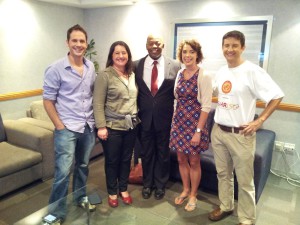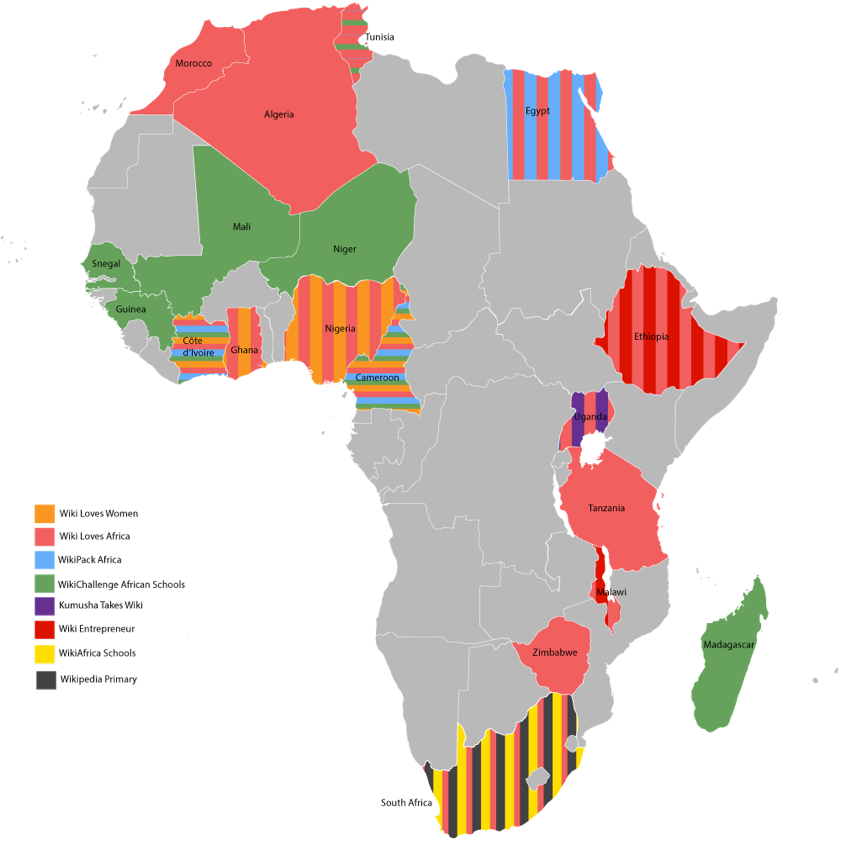In March 2013, the South African Heritage Resource Agency (SAHRA) launched its ground-breaking content management system – SAHRIS. To celebrate the launch of SAHRIS, the South African Broadcasting Corporation (SABC) decided to dedicate 2 hours of their Morning Live show to South African heritage. SAHRIS project’s founder and developer Nicholas Wiltshire invited WikiAfrica to...
In March 2013, the South African Heritage Resource Agency (SAHRA) launched its ground-breaking content management system – SAHRIS. To celebrate the launch of SAHRIS, the South African Broadcasting Corporation (SABC) decided to dedicate 2 hours of their Morning Live show to South African heritage.
SAHRIS project’s founder and developer Nicholas Wiltshire invited WikiAfrica to attend, and explain the greater implications of SAHRIS for Wikipedia and Open Access. Also invited to reveal the landscape and implications for South Africa’s public were Creative Commons South Africa, represented by OER lead Kelsey Wiens, and the Heritage Portal, represented by founder James Ball.
SAHRIS is a fully collated database of South Africa’s heritage resources – that also enables site assessments and planning applications that has been released under the CC-BY-SA licence.

The Open Heritage team; from left The Heritage Portal’s James Ball, WikiAfrica’s Isla Haddow-Flood, SABC presenter extraordinaire Peter Ndlovu, Creative Commons SA’s OER Lead, Kelsey Weins and SAHRIS’ Nicholas Wiltshire.
WikiAfrica is an international movement that takes place on the African continent and beyond. It encourages individuals, interested groups and organisations to create, expand and enhance online content about Africa. This involves motivating for the representation of the continent’s contemporary realities and history, its peoples and its innovations on the world’s most used encyclopaedia, Wikipedia. WikiAfrica is not owned by one organisation and it belongs to all people and organisations contributing to its scope.
In its various guises and hosted at several institutions (including Lettera27, Africa Centre, Ynternet.org, and Wikimedia CH), the WikiAfrica movement has consistently instigated and led multi-faceted innovative projects. These projects have activated communities and driven content onto Wikipedia. Examples include Share Your Knowledge, #OpenAfrica training Courses and Toolkits, Kumusha Bus (in Ethiopia and Ghana), WikiEntrepreneur (in Ethiopia and Malawi), Kumusha Takes Wiki (Cote d’Ivoire and Uganda) and Wiki Loves Africa.
Over 2016/17 it is working on Wiki Loves Women (in collaboration with the Goethe-Institut), WikiPack Africa, WikiFundi and the WikiChallenge African Schools (funded by the Orange Foundation), WikiAfrica Schools (funded by lettera27), Wikipedia Primary (funded by SUPSI) and Wiki Loves Africa (funded by Wikimedia Foundation).
WikiAfrica was started in 2006 as a collaboration between Wikimedia IT and lettera27, since then – via the support of several organisations and the work of a few people – it has grown to embrace the continent and build communities. It has been pivotal in driving the current contributions done by communities across sub-Saharan Africa.
The projects detailed below form the main backbone of the WikiAfrica movement. They have all been conceptualised, instigated and led by three members of Wiki In Africa, although until 2017 through the agency or fiscal sponsorship of different organisations.
2006
2009
2011
2012
2013
2014
2015
2016
2017

The organisations that have hosted or are collaborating on Wiki Africa projects include: